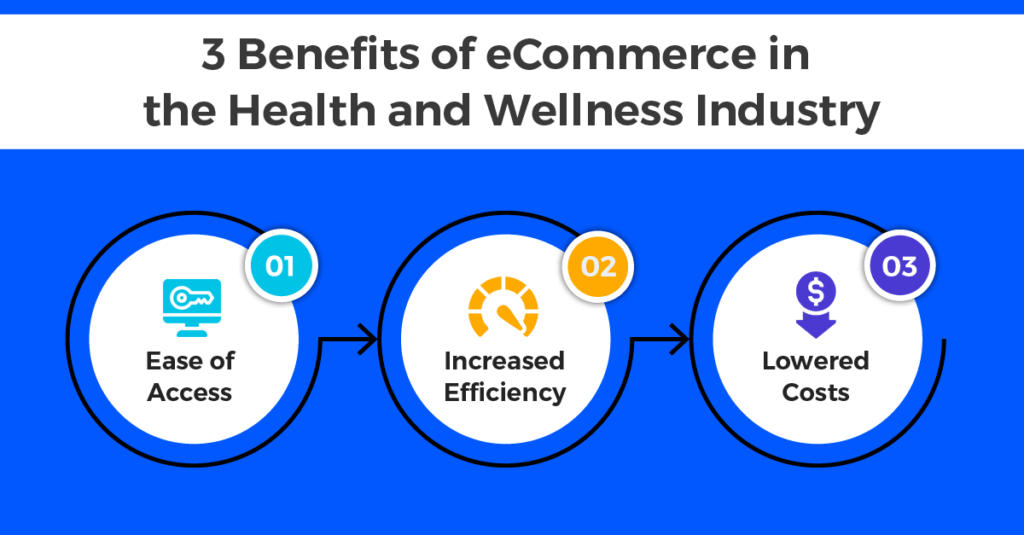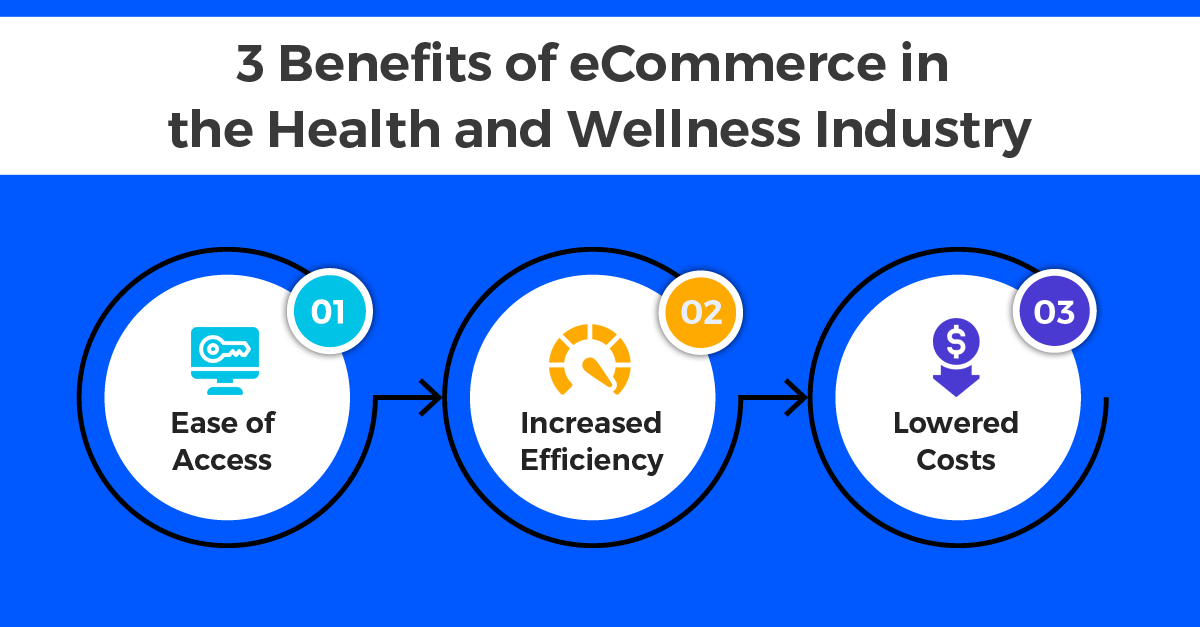
Navigating the Future of Health Commerce: Trends, Challenges, and Opportunities
The intersection of healthcare and commerce, often termed health commerce, is rapidly evolving. Driven by technological advancements, shifting consumer expectations, and the increasing need for accessible and affordable healthcare, health commerce is reshaping how individuals access and manage their well-being. This article delves into the current landscape of health commerce, exploring its key trends, inherent challenges, and potential opportunities for businesses and consumers alike. We will analyze how digital platforms, personalized medicine, and innovative payment models are transforming the health commerce ecosystem.
Understanding the Evolving Landscape of Health Commerce
Traditionally, healthcare has been largely separate from the typical commercial experience. However, the rise of digital health technologies and the increasing consumerization of healthcare are blurring these lines. Health commerce now encompasses a wide range of activities, including online pharmacies, telehealth services, wearable health trackers, and direct-to-consumer genetic testing. This shift empowers individuals to take greater control of their health journey, fostering a more proactive and personalized approach to wellness.
The demand for greater transparency in healthcare pricing and services is also fueling the growth of health commerce. Consumers are increasingly seeking options that provide clear and upfront costs, allowing them to make informed decisions about their care. This trend is pushing healthcare providers and insurers to adopt more consumer-centric models.
Key Trends Shaping Health Commerce
The Rise of Telehealth
Telehealth has emerged as a significant force in health commerce, offering convenient and accessible healthcare services remotely. Through virtual consultations, remote monitoring, and digital therapeutics, telehealth is expanding access to care, particularly for individuals in rural areas or those with limited mobility. [See also: Telehealth Adoption Rates in Rural Communities]
The COVID-19 pandemic accelerated the adoption of telehealth, demonstrating its potential to deliver timely and effective care while minimizing the risk of infection. As telehealth technologies continue to improve and regulations evolve, it is expected to play an increasingly prominent role in health commerce.
Personalized Medicine and Precision Health
Advancements in genomics and data analytics are paving the way for personalized medicine, which tailors treatment plans to an individual’s unique genetic makeup and lifestyle. This approach is transforming health commerce by enabling more targeted and effective interventions. Direct-to-consumer genetic testing kits are becoming increasingly popular, providing individuals with valuable insights into their health risks and predispositions. However, the ethical and privacy implications of personalized medicine must be carefully considered.
Wearable Health Trackers and Remote Monitoring
Wearable devices, such as smartwatches and fitness trackers, are generating vast amounts of health data that can be used to monitor vital signs, track activity levels, and identify potential health problems. This data is invaluable for remote patient monitoring, allowing healthcare providers to track patients’ progress and intervene proactively when necessary. The integration of wearable data into electronic health records (EHRs) is further enhancing the potential of health commerce.
Digital Pharmacies and Online Medication Management
Digital pharmacies are revolutionizing the way people access and manage their medications. Online platforms offer convenient prescription refills, automated medication reminders, and secure delivery services. This streamlines the medication management process and improves adherence to treatment plans. Furthermore, digital pharmacies often provide cost-effective alternatives to traditional brick-and-mortar pharmacies, making healthcare more affordable.
Blockchain Technology in Healthcare
Blockchain technology has the potential to address several challenges in health commerce, including data security, interoperability, and supply chain management. By creating a secure and transparent ledger, blockchain can facilitate the exchange of health information between different stakeholders while protecting patient privacy. It can also be used to track the provenance of medications and prevent counterfeiting.
Challenges and Considerations in Health Commerce
Data Security and Privacy
The increasing reliance on digital health technologies raises significant concerns about data security and privacy. Protecting sensitive patient information from cyberattacks and unauthorized access is paramount. Robust cybersecurity measures and compliance with data privacy regulations, such as HIPAA, are essential for maintaining trust in health commerce.
Interoperability and Data Exchange
The lack of interoperability between different healthcare systems and digital health platforms hinders the seamless exchange of patient data. This can lead to fragmented care and inefficiencies. Efforts to promote interoperability and establish common data standards are crucial for realizing the full potential of health commerce. [See also: Interoperability Standards in Healthcare]
Regulatory Hurdles and Compliance
The regulatory landscape for health commerce is complex and constantly evolving. Navigating the various regulations governing telehealth, data privacy, and medical device approval can be challenging for businesses. Compliance with these regulations is essential for ensuring patient safety and maintaining legal compliance.
Digital Divide and Health Equity
The digital divide, which refers to the unequal access to digital technologies and internet connectivity, can exacerbate health disparities. Individuals in underserved communities may lack the resources and skills to fully participate in health commerce. Addressing the digital divide and promoting health equity are critical for ensuring that everyone benefits from the advancements in health commerce.
The Need for Consumer Education
As health commerce becomes more prevalent, it is essential to educate consumers about the benefits and risks of digital health technologies. Consumers need to be able to critically evaluate the information they find online and make informed decisions about their health. Healthcare providers and organizations have a responsibility to provide accurate and unbiased information to consumers.
Opportunities in the Future of Health Commerce
Developing Innovative Digital Health Solutions
There is a growing demand for innovative digital health solutions that address unmet needs in healthcare. This presents opportunities for entrepreneurs and businesses to develop new technologies and services that improve patient outcomes and enhance the healthcare experience. Examples include AI-powered diagnostic tools, personalized health coaching platforms, and virtual reality therapies.
Creating Seamless and Integrated Healthcare Experiences
Consumers are increasingly seeking seamless and integrated healthcare experiences that are convenient, affordable, and personalized. Businesses that can deliver these experiences will have a competitive advantage in the health commerce market. This requires a focus on user-centered design, data integration, and collaboration between different healthcare providers and stakeholders.
Leveraging Data Analytics to Improve Health Outcomes
The vast amounts of data generated by digital health technologies can be leveraged to improve health outcomes and reduce healthcare costs. By analyzing this data, healthcare providers can identify patterns, predict risks, and personalize treatment plans. Data analytics can also be used to optimize healthcare operations and improve efficiency.
Expanding Access to Affordable Healthcare
Health commerce has the potential to expand access to affordable healthcare, particularly for individuals in underserved communities. Telehealth, digital pharmacies, and other digital health solutions can reduce costs and improve convenience, making healthcare more accessible to a wider population. This requires a focus on affordability, accessibility, and health equity.
Conclusion: Embracing the Potential of Health Commerce
Health commerce is transforming the healthcare landscape, offering new opportunities to improve access, affordability, and quality of care. While challenges remain, the potential benefits of health commerce are significant. By embracing innovation, prioritizing data security and privacy, and addressing health equity, we can harness the power of health commerce to create a healthier future for all. The future of health commerce hinges on a collaborative approach, bringing together healthcare providers, technology developers, policymakers, and consumers to shape a system that is both efficient and patient-centric. The continuing evolution of health commerce promises a more personalized and proactive approach to health management, empowering individuals to take control of their well-being. Ultimately, the success of health commerce will depend on its ability to deliver tangible benefits to patients, while adhering to the highest ethical standards and ensuring equitable access for all. The ongoing development within health commerce requires constant monitoring and adaptation to ensure that its advancements serve the best interests of the population’s health and well-being. This dynamic field of health commerce is poised to revolutionize healthcare delivery and reshape the future of personal health management.

